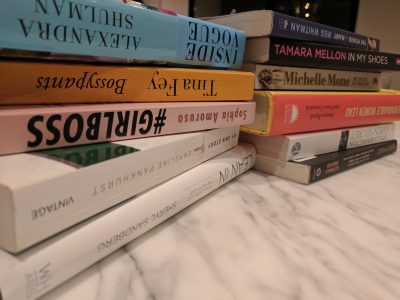How reading biographies can be life-changing!
‘Surely you’re joking, Mr. Feynman!’, what a captivating title for an autobiography! isn’t it? Equal parts fascinated by the title and curious about the life of one of the greatest minds of the 21st century, I began reading the book last week. Immediately I fell in love with Richard Feynman‘s sense of humor and quick wit, not to mention his genius.
While taking in each word with glee, I realized how much I missed reading biographies. I am fortunate enough to have read some excellent memoirs, biographies, and autobiographies, which left lasting impressions on me. However, I was only reading non-fiction, science, and philosophy books recently, being too attached to these subjects.
Getting stuck in a particular genre is the greatest bane of book lovers. Even while advocating the importance of reading different categories, I inadvertently kept reading what I loved more. It is hence essential to intentionally remind ourselves of the importance of venturing into hitherto unexplored areas.
Why read biographies
A window into the great minds
Auto-biographies are a window into the thought processes of great minds. We can see that their thinking is the one thing that separates them from others. Their steadfastness to the goal and their thinking pattern can be emulated in our lives. Hence, reading the life story is an opportunity to stand on the shoulders of the giant and see the world through their eyes.
For instance, while reading the ‘The story of my experiments with truth’ by Gandhi, I was amazed, not by the proverbial many-sidedness of the leader, but by his benevolent, almost saintly, thought process. What stands out in the autobiographical account of Richard Feynmann is his playful thoughts and quick wit. Similarly, the vast knowledge with which Guru Nitya Chaitanya Yati and Nataraja Guru gauge the world did not fail to make an impression on me.
Gives a historical perspective
Most biographies give us a glimpse into the human life of the time when the protagonist lived. This portrayal, mostly unintentional, can be amusing, even revelatory. Sometimes they can be a window into the social and cultural factors that shaped the person. The best example is Adolf Hitler’s autobiography, in which he portrays a society biased against the Jews. This discrimination brewed his hatred towards the race.
If we can learn lessons from history and take steps to mitigate evil and propagate good, we could create a better world. At the very least, we can prevent ourselves from repeating the same mistakes.
Promotes self-discovery
Biographies help us to take a hard look at ourselves. We often find refuge in complaining about the insufficiencies in our life. While going through the paths of greats, we will realize that they had to struggle against great odds to be what they became. For instance, the humble births and poor childhoods did not deter Abraham Lincoln, Abdul Kalam, and Srinivasa Ramanuja from achieving greatness; at best, it ignited their passion to grow.
Helps to cope with failures better
No one who has read the story of the Wright brothers will complain about failing too many times. Every icon, from Edison to Lincoln, from Mandela to Gandhi, has tasted bitter failures repeatedly. However, they refused to be beaten and were ready to cut the Gordian knot if necessary to reach their goal. Their indomitable spirit inspires us to take failure lightly, even as an opportunity to learn.
It is necessary to add that some have faced even death valorously. In the memoir ‘Tuesdays with Morrie’ by Mitch Albom, the author recounts the positiveness of his Motor-Neuron-Disease-affected teacher Morrie. The last days of the famous neurosurgeon Paul Kalanthi, portrayed in his posthumous book ‘When Breath becomes air’, tells us how he kept smiling in the face of cancer.
Such memoirs can guide us through hard times.
Widens our perspective
Biographies are sometimes keys to the unseen world of wonders. Many brilliant minds open for us a completely foreign landscape of thought processes and experiences. We cannot help but feel shallow after reading their stories. Many a time, it will inspire us to explore the world more.
Some biographies paint pictures that are stunning, even seemingly fictional. The encounters of Dan Millman with his master depicted in his biographical book ‘The Peaceful Warrior’, borders on magical realism. ‘The Autobiography of a Yogi’, the spiritual quest of Paramahamsa Yogananda, is equally mind-boggling, if not more.
Get started
The world of reading is like a varied jungle, filled with books of every kind. But, bibliophiles tend to stand beneath one genre and marvel at it. However, a trek through the dense forest sometimes gives us an idea of how much we have missed. Legends of the best among the human race are prominent among them.
Biographies give us an opportunity to walk through the paths of greats who made their footprints on the sands of time. Auto-biographies, furthermore, are free passes into the inner world of the great mind.
If we can follow them, can’t we unleash our true potential and serve the human race better?
Thank you for reading.

Well said and words to contemplate! <3
Thank you.
Thank you!